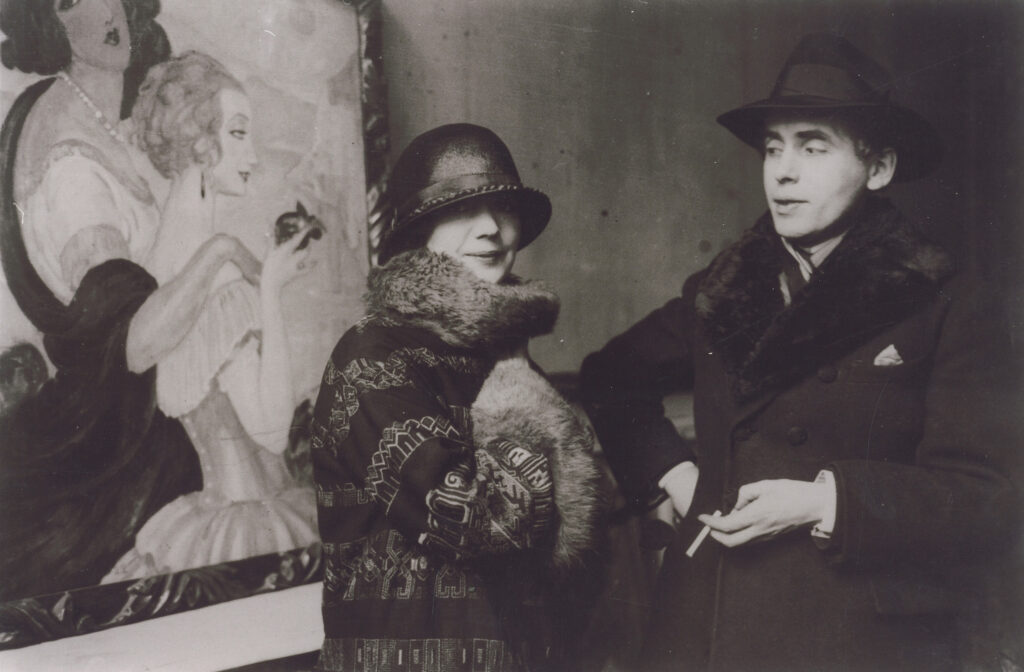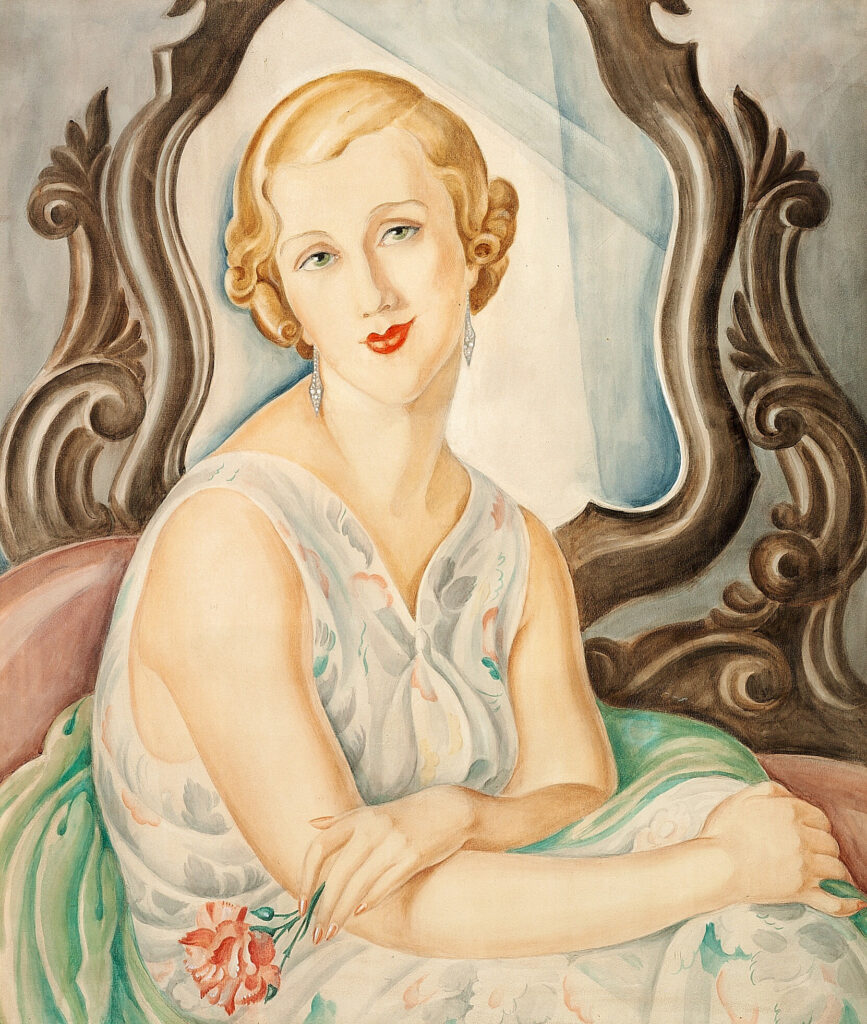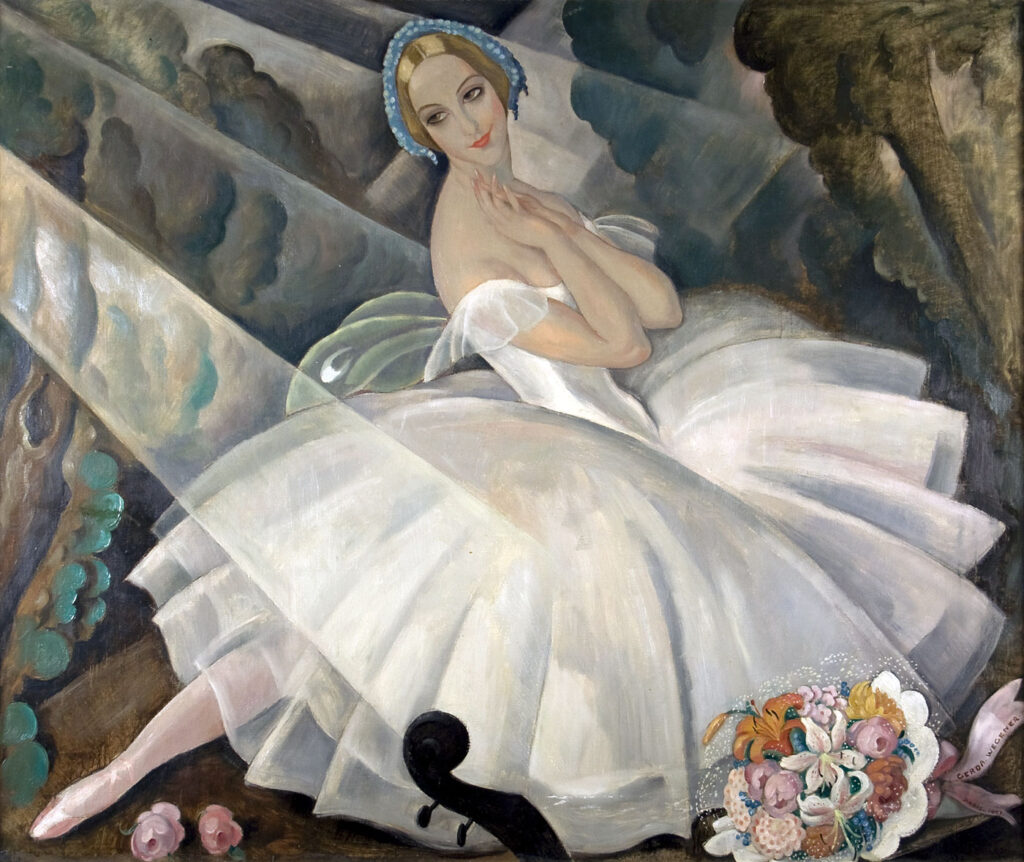Now on view: The art of Gerda Wegener and Lili Elbe
Their relationship inspired the movie The Danish Girl. Now, a new exhibition displays more than 60 works by the women painters and romantic partners in the US for the first time.
Planting Fields presents approximately 60 works by Danish artist Gerda Wegener (1886 – 1940) and her spouse Einar Wegener (also known as Lili Elbe, 1882 – 1931) whose art and life reflected a passion for beauty, pleasure, and individuality.

The Wegeners met as young art students in Copenhagen and married soon after. Gerda Wegener’s combination of Art Deco and Art Nouveau paintings, drawings, and illustrations quickly garnered attention. Her fashion illustrations, cosmetic advertisements, and whimsical, erotic drawings celebrated the independent “New Woman”: these images in popular culture shifted how women were represented and also challenged traditional gender and sex roles.
Gerda’s work will be shown alongside a selection of Einar Wegener’s post-impressionist landscape paintings, American artist Everett Shinn’s (1876 – 1953) neo-rococo drawings and paintings, and various fashion and lifestyle ephemera from Planting Fields’ collection. Drawn primarily from private collections, Wegener’s groundbreaking drawings, paintings, and watercolors will be on view to the public for the first time in the United States.
“This is a rare opportunity for American audiences to see work by this pioneering artist,” says Meredith Brown, Planting Fields Foundation’s chief curator. “There has been much recent focus on their personal lives, but Gerda Wegener’s artworks are equally captivating and have been difficult to see outside of Europe. Fashioning Desire traces her career from early works to late ones.”
Known for their unconventional lifestyle, Gerda and Einar Wegener were the subjects of the 2015 Oscar-nominated film The Danish Girl, which tells the story of Einar’s transition from male to female including undergoing one of the first known gender confirmation surgeries. The two artists’ lives and careers were bound closely together. As Lili Elbe, Einar Wegener became Gerda’s favored model and the couple began living together openly as two women.”

Finding Copenhagen society too restrictive, the Wegeners moved to Paris in 1912 where they integrated into the lively and tolerant cultural scene. As Gerda’s career as an illustrator and portraitist flourished in Paris, Einar stopped painting and began to live fully as Lili Elbe. In Berlin in 1930 Elbe underwent a series of gender reassignment surgeries. Surgical complications led to her death in 1931. Gerda remarried, lived briefly in Morocco, and died in Denmark in 1953.
Building on the acclaimed success of the film and the increased visibility of the personalities of Gerda Wegener and Lili Elbe, this exhibition offers an opportunity to foreground queer histories through artworks that celebrate moments of and influential figures in the iconic couple’s complex life.
By incorporating the innovative, provocative, and beautiful work of Gerda Wegener and the lush landscapes of Einar Wegener into the highly decorated and designed context of Coe Hall, an early twentieth-century Tudor Revival home, this exhibition gives audiences an opportunity to view these extraordinary works for the first time and illuminates the cultural moment in which W.R. and Mai Coe lived and built their country estate.
Einar Wegener’s landscapes draw inspiration from French formal gardens and are perfect complements to the Olmsted Brothers landscape surrounding the mansion. Gerda Wegener’s use of an erotic and sensitive female gaze to portray women and her combination of high and low cultural imagery place the artist as an innovative figure in the history of modernism, a history critical to the story of Planting Fields.
Fashioning Desire is on view March 26 – June 26, 2022. Planting Fields Foundation’s first annual Planting Pride Festival is June 11.
About Planting Fields Foundation
Created beginning in 1913 by insurance magnate William Robertson Coe and his wife, Mai Rogers Coe, heiress and daughter of Standard Oil partner Henry Huttleston Rogers, Planting Fields is an estate on Long Island’s Gold Coast that is a historical testament to American art, architecture, landscape, and horticulture. Located in Oyster Bay, New York and originally landscaped by the Olmsted Brothers Firm, the grounds feature 409 acres of greenhouses, rolling lawns, formal gardens, woodland paths, and outstanding plant collections. Designed as an integrated composition of the built and natural world, the original historic estate buildings and landscape remain intact including Coe Hall, a 65-room Tudor Revival mansion designed by Walker & Gillette. Founded in 1952 by W. R. Coe, Planting Fields Foundation is a not-for-profit public educational foundation chartered by the New York State Board of Regents. With regular exhibitions, conservation and educational programs, Planting Fields Foundation strives to preserve and make relevant to all audiences the heritage of Planting Fields.






